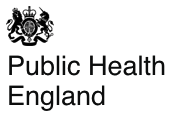Members Login

Channels
Special Offers & Promotions
Cancers are Being Diagnosed Earlier in England
The proportion of cancers diagnosed as a result of emergency presentation at hospital has decreased.
 At the same time, the proportion of cancers diagnosed through urgent GP referral with a suspicion of cancer (known as the two week wait) has increased.
At the same time, the proportion of cancers diagnosed through urgent GP referral with a suspicion of cancer (known as the two week wait) has increased.
Presented at the second day of the PHE Conference 2015, these results are taken from the updated Routes to Diagnosis data, covering patients diagnosed with cancer from 2006 to 2013, with 2011-2013 being published for the first time. These new preliminary figures show the proportion of patients diagnosed by route and by year in England.
In 2006 almost 25% of cancers, one in four, were diagnosed as an emergency. In 2013 this figure had fallen to 20%, or one in five. This is against a rise overall in the numbers of cases of cancer.
For a common cancer like lung, the proportion diagnosed through the GP two week wait referral route increased from 22% in 2006 to 28% in 2013, while the proportion diagnosed through emergency presentation fell each year, from 39% in 2006 down to 35% in 2013.
Julia Verne, Head of Clinical Epidemiology, Public Health England, said:
“The latest Routes to Diagnosis data shows a positive trend in how cancer is diagnosed in England. The earlier the better if we are to catch up with comparable European countries and I am pleased that our Routes to Diagnosis work has been able to drive this. We should also note the importance of other work like PHE’s Be Clear on Cancer campaigns in helping people spot symptoms early and PHE’s NHS Screening Programmes in helping detect some cancers early.
“The reason this is good news is because patients diagnosed as an emergency presentation have lower chances of survival compared to those diagnosed in other routes.
“These improvements in routes to cancer diagnosis follow several years of work across the sector to improve early diagnosis in England. Our work however, is not complete; while emergency presentation is declining it still remains high for cancers like liver and pancreas.”
Sara Hiom, director of early diagnosis at Cancer Research UK, said:
“It’s really encouraging to see fewer people being diagnosed through emergency routes, because we know survival is poorer and the experience is worse for these patients. When cancer is caught early, we have more options for treatments and a far better chance of beating the disease.
“But we must still do better. It’s unacceptable to see such variation in patient care continuing, and too many people are still being diagnosed as an emergency in hospital. As well as variation by cancer type and between hospitals, there are also significant differences in the treatment of our older patients, such as being much less likely to have surgery than younger ones. The new cancer strategy makes clear recommendations for how we can improve England’s cancer survival and patients’ experience. There should be no reason why we can’t be as good as the best in the world.”
more about public health england
Media Partners
Exhibitions & Events
Next events:
loading...

